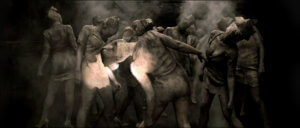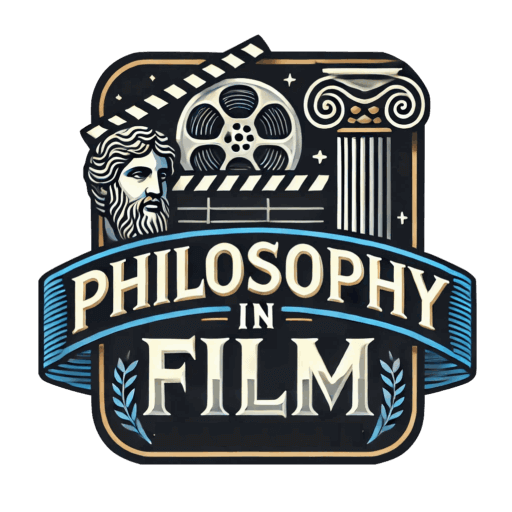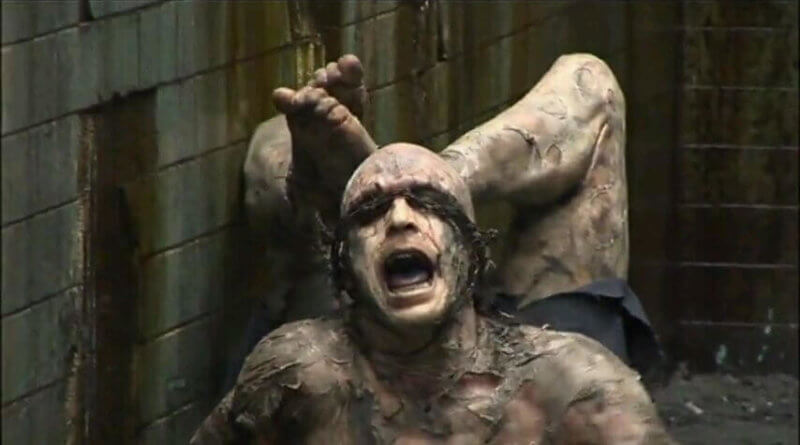Review: Silent Hill (2006) ★½
It is apparently very difficult to make a quality film that is based on a video game franchise. Uwe Boll has proven this time and time again. I cannot think of a single film adapted from a game that has not been eviscerated by critics and audiences alike. It stands to reason that there are a few glaring factors involved in this trend, namely the cultural gap between the average “gamer” and the studio executives producing such films. Despite the fact that gamers have become an increasingly large and normalized group in society, often seeking games (and films) with deep, intricate narratives, studios continue to treat them as a fringe group, with subpar intellect and immature, unrefined tastes. Perhaps there is some truth to this assumption; a large swathe of gamers are teenagers, whose taste in video games and films alike might fit the “lowest common denominator” approach that these production companies take; however, this excludes a very large portion of gaming enthusiasts who would love to see their favorite titles brought to the big screen in a way that is both true to the source material and more than just a financially-motivated product.
Silent Hill, directed by Christopher Gans (Brotherhood of the Wolf, Beauty and the Beast), is an adaptation of Konami’s long-running survival-horror series. The plot follows Rose (Radha Mitchell) and her husband, Christopher (Sean Bean), and their daughter, Sharon (Jodelle Ferland), who sleepwalks and suffers from disturbing visions of a town called Silent Hill. In an attempt to cure Sharon, Rose takes her to Silent Hill, but is run off the road by a young girl who suddenly appears through the fog. When Rose wakes from the crash, Sharon is missing, and Rose finds herself in the foggy, dream-like world of Silent Hill. As she explores the town in search of Sharon, she discovers nightmarish monsters and learns the sordid history of the town from a group of cultists who call themselves the Brethren. Rose comes to find out that Sharon bears a striking resemblance to Alessa, a young girl burnt alive by the Brethren years prior. In order to find her daughter and escape the nightmare world, Rose must figure out the mysteries behind Alessa and Silent Hill.
Much like the games that it is based on, Silent Hill is all about atmosphere. Thankfully, this is something that it manages to replicate very well. The town is surreal, mysterious, and thoroughly unsettling. Its inhabitants range from tragic locales, forced to live eternally in the town’s collective nightmare, to hellish creatures, who seem to be lost souls damned for all eternity. I have mixed emotions about the indifference the filmmakers have toward the latter group. While these creatures are intriguing, terrifying, and grotesque, the protagonists are dull, predictable, and not particularly interesting, making it that much more disappointing that the story gives the protagonists so much attention while ignoring the real stars of the film. Having said that, part of what makes these creatures so frightening is that they are enigmatic. We don’t understand them, or where they came from, or why they are seemingly tortured for all eternity, which allows our imaginations to run wild with a kind of morbid fascination. Because they are so repulsive, we want to learn what kind of perverse creator brought them into existence, but we are never given any answers. While this allows them to be more mysterious and therefore, in a sense, more terrifying, it is also deeply unsatisfying to receive no explanation as to their origin stories.
While the creatures fulfil their duty in contributing to the nightmarish atmosphere, the story fails to add anything of value, making the film a rather boring exercise, only occasionally punctuated by frightening imagery. If not for the images of sadistic and hellish torture, the film would be completely devoid of any real horror or purpose. The characters are completely two-dimensional, and barely worth mentioning, while the story is at best ill-conceived and at worst complete gibberish. The “backstory” behind Silent Hill and its residents is convoluted and heavily-reliant on a mythos that seems to change whenever the story requires it.

Perhaps the plot’s only saving grace is the inclusion of notably anti-religious elements. Whether or not one agrees with such sentiments, it is a bold choice for what would otherwise be a relatively mainstream, by-the-books horror film. The Brethren act as a kind of overly-dogmatic cult, whose leader, Christabella (Alice Krige), accuses the protagonists of being witches and has previously committed murder under the guise of religious morality. At one pivotal moment, Christabella is even bound by an evil spirit, and her body is positioned like Jesus on the cross. While the symbology is clear and adds a hint of depth to an otherwise painfully shallow story, the filmmakers never give these moments more than a passing glance.
This brings me to one of the worst aspects of the film, which is the writing. It goes without saying that, with clearer exposition, the story would have been less confusing, but it goes much deeper than inefficient storytelling. There are times when the dialogue is painfully unrealistic, and even downright obnoxious. During the first few minutes after Rose wakes up in Silent Hill, the only words spoken are her repeated shouts of “Sharon” into the fog. I realize that this does not sound all that bad, and it has an obvious function in the story: Rose is desperately searching for her daughter, therefore she needs to shout her name. However, it goes on and on; just when you think there will be some new words spoken, or another character introduced, Rose begins shouting after her daughter again, without even changing the tone of her voice. Its ridiculous to the point of being comedic, and it could have been easily fixed in the editing room.
While Silent Hill partially satisfies the craving for a brutally dark and violent horror film, it does so in the most bland and forgettable manner possible. Every part of this overproduced film is rife with inconsistencies, and while some of the mistakes are forgivable, and the horrifying creatures and art design give it distinction, it is ultimately yet another failed video game adaptation that underestimates the tastes of its target audience.
Rating: 1.5 out of 5
Silent Hill is available to rent or purchase via Amazon here.

